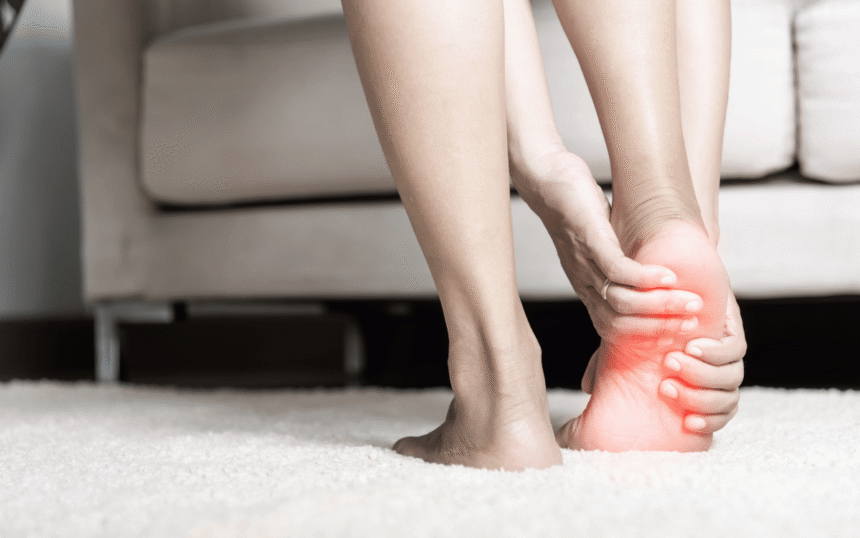In the fast-paced world we live in, sleep is often undervalued. However, restorative sleep is not a luxury—it’s a vital function that directly impacts every system in the body. From improving memory and mood to enhancing immunity and repairing cells, sleep plays a powerful role in your overall well-being.
This article explores the importance of sleep, what happens while we rest, and how quality sleep supports a healthier body and mind.
What Is Restorative Sleep?
Restorative sleep is the kind of sleep that leaves you feeling refreshed, energized, and mentally sharp the next day. It typically includes a balanced cycle of sleep stages—especially deep sleep (slow-wave sleep) and REM sleep—that support physical and mental recovery.
The Stages of Sleep:
- Light Sleep – Helps the body begin to relax
- Deep Sleep – Supports muscle repair, immune function, and energy restoration
- REM Sleep – Vital for learning, memory, and emotional regulation
Getting enough time in each of these stages ensures that your sleep is truly restorative.
Benefits of Restorative Sleep for the Body
1. Boosts Immune Function
While you sleep, your body produces cytokines—proteins that help fight infection, inflammation, and stress. Lack of sleep weakens your defense system, making you more prone to illness.
2. Supports Heart Health
Consistent sleep regulates blood pressure, heart rate, and inflammation—all essential for cardiovascular health. Poor sleep has been linked to higher risks of heart disease and stroke.
3. Aids in Weight Management
Sleep affects hormones that control hunger, such as ghrelin and leptin. Inadequate sleep can increase appetite and cravings, especially for sugary and high-fat foods.
4. Enhances Physical Recovery
During deep sleep, the body releases growth hormone, which helps repair tissues, build muscle, and heal after injury or exercise.
5. Regulates Blood Sugar
Lack of sleep can impair insulin sensitivity, increasing the risk of type 2 diabetes. Restful sleep helps maintain balanced blood sugar levels.
Benefits of Restorative Sleep for the Mind
1. Improves Memory and Learning
REM sleep strengthens neural connections that are vital for learning and retaining information. It also helps process new experiences and consolidate memories.
2. Enhances Mood and Emotional Stability
Poor sleep is linked to irritability, anxiety, and depression. Getting quality rest stabilizes mood-regulating neurotransmitters and reduces stress hormones like cortisol.
3. Boosts Focus and Creativity
A well-rested brain is more alert, better at problem-solving, and more creative. Sleep helps clear mental clutter and improve cognitive performance.
4. Supports Mental Health
Sleep and mental health are deeply connected. Chronic sleep deprivation is both a symptom and a contributor to mental health disorders like anxiety, depression, and bipolar disorder.
How Much Sleep Do You Really Need?
The optimal amount of sleep varies by age and individual needs. However, the National Sleep Foundation recommends:
| Age Group | Recommended Hours of Sleep |
|---|---|
| Teens (14–17) | 8–10 hours |
| Adults (18–64) | 7–9 hours |
| Older Adults (65+) | 7–8 hours |
Signs You’re Not Getting Restorative Sleep
- Waking up tired despite enough hours in bed
- Difficulty falling or staying asleep
- Frequent mood swings or irritability
- Trouble concentrating or remembering things
- Dependence on caffeine to stay awake
- Feeling drowsy during the day
Tips for Getting Restorative Sleep
1. Stick to a Sleep Schedule
Go to bed and wake up at the same time every day, even on weekends. A consistent routine helps regulate your internal body clock.
2. Create a Sleep-Friendly Environment
- Keep your bedroom cool, quiet, and dark
- Use comfortable bedding
- Remove electronics and minimize noise
- Try white noise machines or blackout curtains
3. Wind Down Before Bed
Establish a calming bedtime routine:
- Read a book
- Practice meditation or deep breathing
- Take a warm bath
- Avoid screens for 1–2 hours before bed
4. Watch What You Eat and Drink
- Avoid heavy meals, caffeine, and alcohol close to bedtime
- Don’t go to bed hungry—or too full
5. Be Physically Active (But Not Too Late)
Regular physical activity promotes better sleep. Just avoid vigorous workouts late in the evening.
6. Limit Naps
While short naps can boost energy, long or late-day naps can interfere with nighttime sleep.
7. Manage Stress
Chronic stress can disrupt sleep patterns. Journaling, mindfulness, or talking to a therapist can help reduce mental tension.
When to Seek Help
If you consistently struggle with sleep despite healthy habits, you may be dealing with a sleep disorder like:
- Insomnia
- Sleep apnea
- Restless legs syndrome
- Narcolepsy
Consult a sleep specialist or healthcare provider for diagnosis and treatment options.
Conclusion
Sleep is not just rest—it’s recovery, renewal, and restoration. Investing in restorative sleep is one of the most powerful ways to protect your body and mind. Whether it’s boosting your immune system, sharpening your memory, or lifting your mood, good sleep fuels your ability to live a full and healthy life. Make sleep a non-negotiable priority—and reap the long-term rewards.
FAQs About Restorative Sleep
1. What is the difference between sleep and restorative sleep?
Restorative sleep involves spending enough time in deep and REM sleep stages that allow for full physical and mental recovery.
2. Can naps replace a full night’s sleep?
Short naps can help with fatigue, but they don’t replace the benefits of consistent, high-quality nighttime sleep.
3. Does everyone need 8 hours of sleep?
No. Most adults thrive on 7–9 hours, but individual needs vary. The key is how refreshed you feel during the day.
4. How can I tell if I had good sleep?
Signs include waking up refreshed, staying alert during the day, and not needing stimulants to function.
5. Is it normal to wake up during the night?
Waking briefly is normal. Trouble falling back asleep or frequent interruptions may indicate a sleep disorder.
6. Do sleep aids help with restorative sleep?
Sleep aids may help short-term, but long-term use can interfere with natural sleep cycles. Always consult your doctor first.
7. What role does diet play in sleep quality?
A balanced diet supports sleep. Avoiding caffeine, sugar, and alcohol before bed can improve sleep quality.
8. Can exercise help me sleep better?
Yes. Regular moderate exercise improves sleep quality—just avoid strenuous workouts too close to bedtime.









